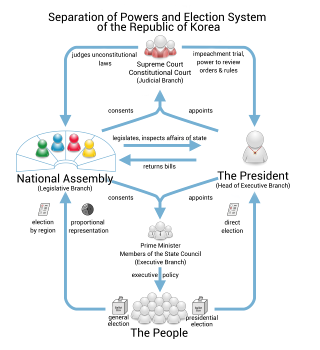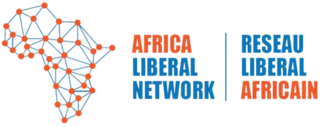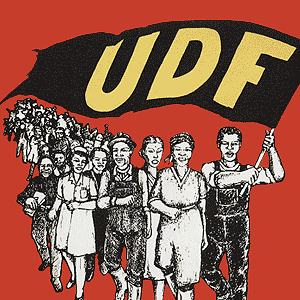Mission of the SUDF
The founding of the SUDF was the result of a growing conviction that in order to create a strong civil society that could work actively for democratization and poverty eradication, there would have to be more unity and coordination among the civil society organisations of Swaziland.
The formation of the SUDF is a concerted attempt of these organisations to increase the space for democratic participation for and by the socio-economically and politically marginalized people of Swaziland. The existing space for protest action is currently limited to the unions, who have secured themselves this space through the Industrial Act. Since the unions are member organisations of the SUDF, the SUDF is therefore in a strong position to expand the space for this type of action.
In 2009, 5000 members of the SUDF agreed on the Manzini Declaration. The Manzini Declaration constitutes a mission statement, which affirms the SUDFs commitment to human rights and sets out its views on a number of substantive issues in relation to the basic rights of people in Swaziland and the social and political development in the country. [1] [2] [3] [4] [5] [6]

Chile's government is a representative democratic republic, in which the President of Chile serves as both head of state and head of government, within a formal multi-party system. Executive power is exercised by the president and their cabinet. Legislative power is vested in both the government and the two chambers of the National Congress. The judiciary operates independently of both the executive and legislative branches.

The politics of South Korea take place in the framework of a presidential representative democratic republic, whereby the president is the head of state, and of a multi-party system. To ensure a separation of powers, the Republic of Korea Government is made up of three branches: legislative, executive, and judicial. The government exercises executive power and legislative power is vested in both the government and the National Assembly. The judiciary is independent of the executive and the legislature and comprises a Supreme Court, appellate courts, and a Constitutional Court.
Freedom of association encompasses both an individual's right to join or leave groups voluntarily, the right of the group to take collective action to pursue the interests of its members, and the right of an association to accept or decline membership based on certain criteria. It can be described as the right of a person coming together with other individuals to collectively express, promote, pursue and/or defend common interests. Freedom of association is both an individual right and a collective right, guaranteed by all modern and democratic legal systems, including the United States Bill of Rights, article 11 of the European Convention on Human Rights, section 2 of the Canadian Charter of Rights and Freedoms, and international law, including articles 20 and 23 of the Universal Declaration of Human Rights and article 22 of International Covenant on Civil and Political Rights. The Declaration on Fundamental Principles and Rights at Work by the International Labour Organization also ensures these rights.
A supranational union is a type of international organization and political union that is empowered to directly exercise some of the powers and functions otherwise reserved to states. A supranational organization involves a greater transfer of or limitation of state sovereignty than other kinds of international organizations.

The People's United Democratic Movement is the largest opposition party in Eswatini. It is a democratic socialist party. Formed in 1983 at the University of Eswatini, it is led by Mlungisi Makhanya.
Young Belarus is a youth political block in Belarus, founded by "Young Front" and some leaders of democratic movement on March 14, 2004. In 2009, Young Belarus became just another youth political organisation in Belarus; later that year Young Belarus separated into two separate wings, both claiming to be the real Young Belarus:

The Africa Liberal Network is an organization composed of 42 political parties from 24 countries in Africa. It is an associated organisation of Liberal International, the political family to which liberal democratic parties belong. The ALN serves to promote liberal objectives and principles throughout the continent.

The United Democratic Front (UDF) was a South African popular front that existed from 1983 to 1991. The UDF comprised more than 400 public organizations including trade unions, students' unions, women's and parachurch organizations. The UDF's goal was to establish a "non-racial, united South Africa in which segregation is abolished and in which society is freed from institutional and systematic racism." Its slogan was "UDF Unites, Apartheid Divides." The Front was established in 1983 to oppose the introduction of the Tricameral Parliament by the white-dominated National Party government, and dissolved in 1991 during the early stages of the transition to democracy.

The Civil Human Rights Front (CHRF) was an organisation that focused on the issues of Hong Kong politics and livelihood, affiliated with almost all pan-democratic camps in Hong Kong. It was founded on 13 September 2002 and disbanded on 15 August 2021.

Socialist Youth is the youth organisation of the Socialist Party of Portugal. The Socialist Youth (JS) is a political organization that emerges as a youth party of the Socialist Party. It is integrated, politically and ideologically, into democratic socialism and social-democracy. It is made up of young people over 14 and under 30, Portuguese or resident in Portugal. Currently, the organization’s Secretary-General is Miguel Costa Matos, chosen in the XXI National Congress of the JS that took place in December 2020. It is a political organization of young Portuguese who accept the political platform approved in Congress, the Declaration of Principles and Program of the Socialist Party, with the aim of building a more just and solidary society in Portugal. The Socialist Youth finds in this political and ideological current a progressive project of social transformation, centered on the values of Equality, Solidarity and Freedom.
The Foundation for Socio-Economic Justice (FSEJ) was founded in 2003 as an umbrella organization with a primary vision of initiating broad civic education programs to encourage democratic participation and raise awareness on human and constitutional rights amongst the rural populations of Eswatini. The primary goal of FSEJ is to help build a solid and unified mass based democratic force.
Voices-Voix was a Canadian coalition of organizations and individuals seeking to defend democracy and enable civil society. It operated between 2010-2020. Voices-Voix worked on government accountability mainly at the federal level and focused on the rule of law, free speech, transparency, and equality. Working with allies, the Coalition also tracked the independence and integrity of Parliamentary institutions, the role of the Canadian government in working with Canadian companies working overseas, the promotion of the role of public science and environmental protection, and support for the rights of organized labour.

The Swazi Democratic Party, also known by its abbreviation SWADEPA, is a political party in Eswatini led by its president Jan Sithole. SWADEPA was established in 2011 and took part in the 2013 parliamentary elections in Swaziland by putting up candidates running as individuals.
Thulani Rudolf Maseko was a Swazi human rights lawyer who was imprisoned from 2014 to 2015, and declared a prisoner of conscience by Amnesty International. He launched a court challenge to King Mswati III of Eswatini in 2018 and was assassinated in 2023.

The European Partnership for Democracy (EPD) is a membership-based network of not-for-profit organisations that describes its aim as "supporting democracy around the world".
A series of protests in Eswatini against the absolute monarchy and for democratisation began in late June 2021. Starting as a peaceful protest on 20 June, they escalated after 25 June into violence and looting over the weekend when the government took a hardline stance against the demonstrations and prohibited the delivery of petitions. Lower-level unrest and protests continued until summer 2023.
This page is based on this
Wikipedia article Text is available under the
CC BY-SA 4.0 license; additional terms may apply.
Images, videos and audio are available under their respective licenses.








